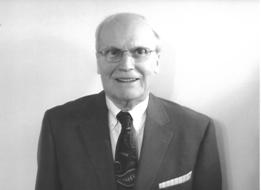

|
There are at least three good reasons for visiting persons in the hospital:
1. Hospital patients are glad to have company unless they are hurting, nauseated, or having a private conversation with the doctor. The minister should be alert to these times and keep the visit brief. Usually the minister would stay 10 to 15 minutes.
2. The patient isn’t going anywhere. Time passes slowly. The person in the hospital, especially if a Christian, will want you to have prayer with him or her.
3. During times of illness or serious injury, people will think more seriously about life and death.
Make contact with the hospital leadership. This is especially good if you are new to the area. Develop a good working relationship with the Hospital Administrator, the Hospital Chaplain, and the nurses who are caring for the patients you are visiting.
Be natural. If a pastor/minister isn’t himself at this time, the patient will be suspicious that something is critically wrong and may be frightened. Also, don’t put on a phony clerical attitude of somberness.
Be brief. Usually families and friends can pass the time of day with the patient and they don’t expect the pastor to stay a long time, especially when the patient is suffering. Long visits can be very exhausting for the patient. There can be an exception to this rule of being brief, if the patient is critical and family members are there. Usually the family members want and need the pastor to be with them during this difficult time.
Never sit on or jiggle a hospital bed! I have seen people stand next to a bed and move back and forth, bumping the bed each time. Someone with stitches or a tender stomach must be screaming on the inside. Bedside manners call for not touching the bed. One should also be careful about touching the patient. You do not want to add to the pain!
It is best not to ask what is wrong. If they want you to know, they will tell you. The patient may have a problem she or he doesn’t want to share. Most of the time, the minister will learn what the illness is before he or she visits.
Be empathetic, but don’t express pity. People want understanding and loving concern, not pity. Be careful about telling patients you know how they feel. Even if you have had a similar illness experience, you cannot know exactly how someone else feels. Give the patient an listening ear.
Be careful about criticizing doctors or other hospital personnel concerning procedures or policies! We should ask questions and be concerned about care, but doctors and nurses must be careful what they share if you are not a family member. Medical doctors and nurses have a difficult job. I can’t imagine being called at 2:00 AM for an emergency operation on a man’s brain. We should have a profound respect for the dedication of doctors and nurses.
It is always good to have selective and appropriate portions of scripture to share with the patient and family members. The Psalms have many verses that can bring tremendous strength and comfort to the patient and family.
Visit, if possible, just before the patient is taken to surgery, and have prayer. Most hospitals allow ministers to visit any time. If possible find out how long surgery will last and try to be there when it’s over. Be there especially for the family, if it is a critical operation.
Ministers, dress appropriately! I do not mean that we have to make hospital calls or home visits dressed in a suit or tie or some other fancy clothes. But the minister should not look like he just walked out of the hay field after working all day in the hot sun.
We are representatives of the greatest Person, our Savior, the Lord Jesus Christ, and the greatest cause, taking the message of the church of God to our world!
“Blessed are those whose help is the God of Jacob, whose hope is in the Lord their God” (Psalm 146:5 NIV).
Then the King will say to those on his right, “Come, you blessed by My Father; take your inheritance, the kingdom prepared for you since the creation of the world. For I was sick and you looked after Me.” Then the righteous will answer, “When did we see You sick and go visit you?” The King will reply, “Whatever you did for one of these brothers of Mine, you did for Me.”
from Matt. 25:34-40
|
